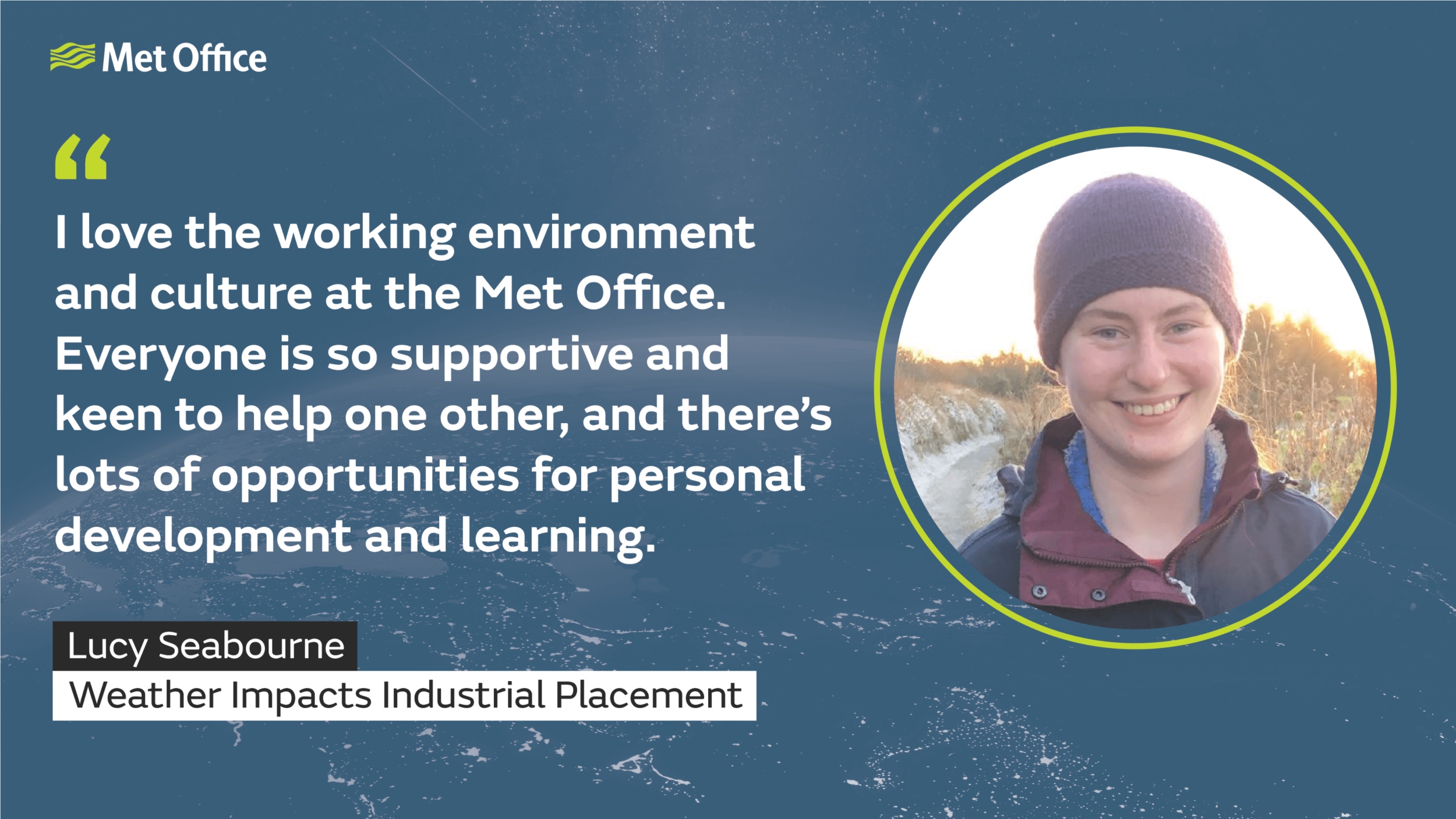Making a difference through coding
Lucy Seabourne discusses her role and experience of doing a Weather Impacts Industrial Placement with the Met Office.

1. Can you tell us something about you and your background?
At school I enjoyed studying both Computer Science and Physical Geography. So, I was delighted when I found a joint honours university course where I could study both. Although a placement year isn’t normally part of my course, I was able to do one by asking the careers department.
2. Why did you want to do an industrial placement with us?
I first heard of the Met Office through the weather warnings service. I’d been interested in working here for several years before I applied for my placement, because of the opportunities to combine my interests in computing and geography by using technology to enhance our understanding of weather and climate. Also, the ethos of the Met Office to help people stay safe and thrive really resonated with me, as did the commitment to sustainability which has never been more important.
I signed up to receive the job alerts to find out what career options were available. Although I wasn’t initially planning to do a placement year, I was drawn to the Weather Impacts placement. By knowing about the impacts of past weather events, such as flooding and heatwaves, we can prepare for similar events in the future. I help facilitate that knowledge, which can ensure people stay safe and maintain their quality of life.
3. What are your main responsibilities?
My role primarily involves coding in python, helping to collate a large database of impacts from weather events in the UK and around the world, such as damage to properties and infrastructure, travel disruption and even loss of life. I extract online data, such as the location, type of weather event and how many people were impacted. This is often recorded in descriptive text, so we use a machine learning model to pick out the necessary information for us. Although it can be complicated, I’ve found solving the problems rewarding and fun!
4. What new skills have you developed?
I’m becoming much more confident with python coding, and I’ve been able to develop my own machine learning model.
I’ve also been encouraged to take opportunities to improve my soft skills, such as public speaking through giving presentations and administration.
I’m hoping to continue using and developing these skills when I return to university in the autumn.
5. How would you describe our culture?
My favourite thing about the Met Office is the amazing working environment and culture. Everyone is so supportive and keen to help one other, especially if you’re struggling with something or have any questions. There are also lots of opportunities for personal development and learning.
6. What have been the challenges and what have you enjoyed so far?
My main challenge so far has been managing my own expectations of where I should be and recognising that discovering something doesn’t work and why is just as important as producing something that does.
One of my highlights so far has been helping to organise an Early Careers Day for all our apprentices, industrial placements and graduates. I really valued being able to network with other early careers people and more senior staff. I’ve also been proud to make a difference to colleagues across the office through my work on the impact database, which in turn will provide benefits to our customers too.
7. What do you like about working with the Met Office, and why would you recommend industrial placements to others?
I’ve appreciated being part of such a positive and welcoming working environment during my placement. It’s also been great to be able to immerse myself in the working world, network with a range of professionals and experts, and see the scope of what we do at the Met Office.
If you have the chance to do a work placement, I’d definitely recommend applying to the Met Office.
This blog was published in January 2024.


